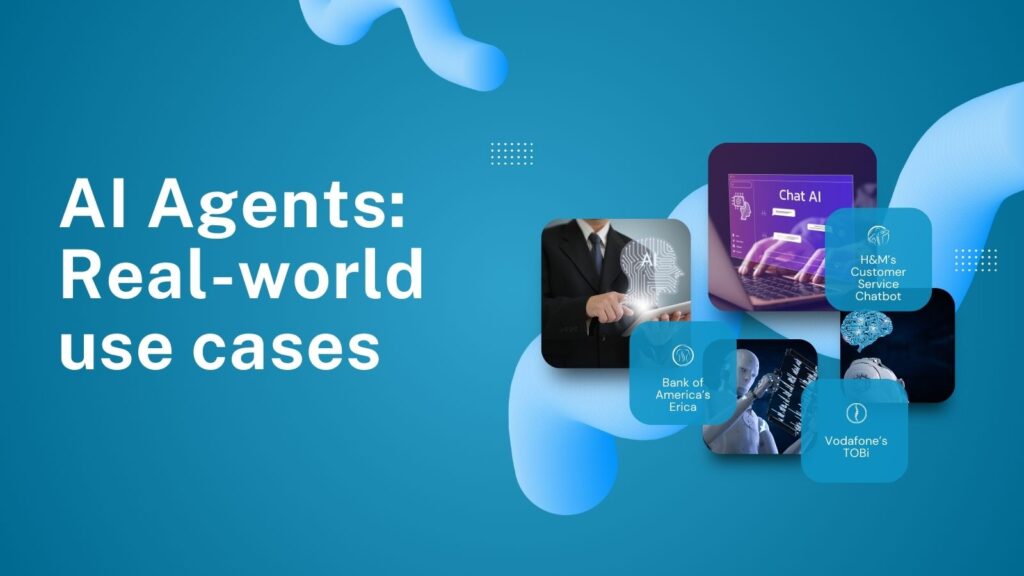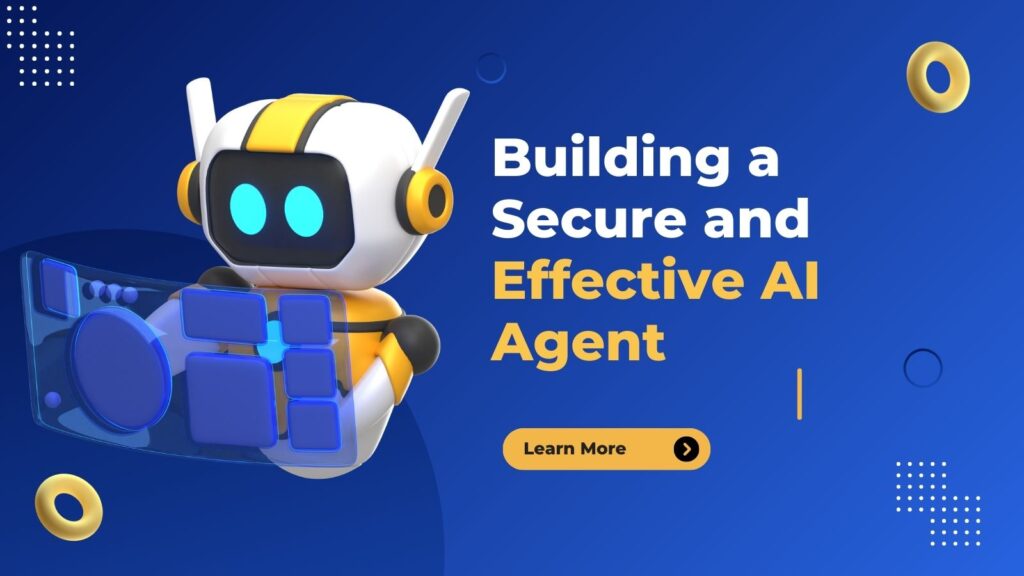How to Create a Transportation App: Features,
Price, and Implementation Steps
29 Aug 2023
18 min

CTO

Technical Writer
AI Agents in Customer Support: Real-World Use Cases and Benefits
For a business to succeed, delivering an exceptional customer experience is essential. The need for instant, personalized, and effective customer support has made AI agents invaluable for businesses across industries. AI-powered solutions, equipped with top-tier algorithms, tend to transform customer support by providing fast, 24/7, highly customized service. In this article, we take a closer look at the implementations of AI agents in customer support, emphasizing the tangible benefits they deliver, including reduced wait times, uninterrupted availability, and enhanced personalization.

The role of AI agents in customer support
AI-powered agents use machine learning, natural language processing (NLP), and data analytics to provide efficient, personalized customer support. These agents can handle various tasks—from answering FAQs to guiding users through complex processes. With the ability to learn and improve over time, AI agents offer dynamic solutions tailored to each user interaction.
Key Functionalities of AI Agents in Customer Support:
- Answering Common Queries: AI agents can handle repetitive questions, freeing up managers for complex issues.
- Providing 24/7 Assistance: AI agents are available around the clock, ensuring users receive support anytime.
- Multi-Language Support: Many AI agents can assist users in multiple languages, expanding accessibility globally.
- Personalization: AI-driven responses are tailored based on customer history, preferences, and sentiment.

Real-world use cases of AI agents in customer support
Let’s dive into some real-world examples showcasing how businesses across various industries successfully take advantage of AI agents in customer support.
Case Study 1: Banking – Bank of America’s Erica
Erica, AI-powered virtual assistant Bank of America’s virtual financial assistant, Erica, is a superior model in customer service automation. Erica provides customers with account information, budgeting tips, and even fraud alerts, all through a conversational interface. Its ability to quickly and accurately answer questions has helped reduce call center load significantly.
Benefits:
- Reduced Wait Times: Erica responds to common banking inquiries instantaneously, cutting down on wait times.
- Increased Accessibility: By being available through mobile apps, Erica enables customers to receive assistance anytime and anywhere.
- Enhanced Personalization: Using data on customer spending habits, Erica can provide tailored financial advice, such as budget suggestions or personalized alerts.
Case Study 2: E-commerce – H&M’s Customer Service Chatbot
Global retail giant H&M implemented a chatbot to streamline their online customer support. The chatbot assists with order tracking, product inquiries, and return processes, providing a seamless shopping experience.
Benefits:
- 24/7 Availability: H&M’s chatbot provides customer support outside regular business hours, enabling buyers to find answers to their questions at their convenience.
- Cost Savings: Automating customer service inquiries reduces the need for significant support teams, allowing H&M to redirect resources toward improving the shopping experience.
- Improved Customer Satisfaction: Customers experience minimal waiting, leading to higher satisfaction and loyalty.
Case Study 3: Telecommunications – Vodafone’s TOBi
Vodafone, a global telecom provider, implemented TOBi, a conversational AI agent, to handle customer service inquiries. TOBi assists customers with billing inquiries, account changes, and service disruptions.
Benefits:
- Efficient Query Resolution: TOBi can resolve common queries, such as billing concerns, in seconds, improving efficiency.
Human-Agent Collaboration: TOBi seamlessly transitions complex queries to human agents, ensuring customers receive accurate information.
Scalability: TOBi’s scalable AI infrastructure supports millions of customers, ensuring consistent service quality during peak times.
Benefits of AI Agents in Customer Support
Taking advantage of AI agents provides numerous benefits for businesses, from boosting operational efficiency and reducing costs to elevating customer experience with rapid, personalized, and always-available support.
Reduced Wait Times
One of the major challenges in customer support is handling a high volume of inquiries promptly. AI-powered agents enable instant responses, helping companies dramatically reduce wait times and avoid bottlenecks in support queues.
24/7 Availability
AI assistants offer continuous support, reducing downtime and ensuring customers can access assistance when needed. This availability is precious for businesses operating in global markets, where time zones can make traditional support hours challenging to navigate.
Personalized Customer Experience
AI agents analyze data from past interactions, purchase history, and customer preferences to provide personalized recommendations and responses. Such a personalized approach enhances user satisfaction and creates a feeling of being valued, encouraging loyalty.
Scalability
They allow businesses to scale support without proportional increases in headcount. This scalability is especially beneficial during seasonal peaks or unexpected spikes in customer inquiries.
Data-Driven Insights
By collecting and analyzing data on customer interactions, AI agents offer valuable insights that can help improve products, services, and overall customer experience. Patterns in customer inquiries can help businesses preemptively address issues, improving service quality and customer satisfaction.
Considerations for Implementing AI Agents in Customer Support
Once you have decided to take advantage of AI technology, make sure you consider the following:
Understanding Customer Needs
AI assistants should be designed to understand customer preferences and behaviors deeply. This involves researching customer pain points and tailoring AI functionalities to address those needs.
Training and Regular Updates
AI-powered agents require regular updates to adapt to changing customer expectations and emerging issues to remain effective.
Human Oversight
While AI agents can autonomously handle many aspects of customer support, some queries require human empathy. Ensuring smooth handoffs between AI agents and human agents can improve customer experience and build trust.
Data Privacy and Security
Given the sensitive nature of customer information, robust data protection measures are essential when implementing AI agents. Compliance with regulations is crucial to maintain customer trust and avoid legal repercussions.
Building a Secure and Effective AI Agent
To get a genuinely effective AI agent, it is essential to focus on training the AI on your business data. Such customization ensures that the AI understands the nuances of the company’s services, products, and customer needs, leading to more accurate and relevant responses.
Training AI with Company Data
A well-functioning AI agent requires training on internal datasets to align with business-specific contexts. Companies can choose between two primary approaches:
- Using Pre-trained Models like ChatGPT. While models like ChatGPT offer advanced conversational capabilities, integrating them into customer support systems may raise data security and privacy concerns. When using external platforms, sensitive company data might be exposed to third-party systems, making it crucial to evaluate security protocols and compliance measures.
- Developing and Training Proprietary LLMs. Alternatively, developers can develop Large Language Models (LLMs) and train chatbots or AI agents on company infrastructure. This approach ensures that all data remains within the organization’s boundaries, providing complete control over data security and privacy. While this requires more resources and expertise, it eliminates risks associated with third-party data handling and offers a tailored solution.
Dynamic Updates with Retrieval-Augmented Generation (RAG)
Also, the capabilities of AI agents can be improved by leveraging Retrieval-Augmented Generation (RAG). By leveraging RAG, chatbots can dynamically update their knowledge base by retrieving and incorporating real-time data from the company’s systems. Such an approach ensures that the AI always provides accurate and up-to-date information without requiring manual retraining. For example, AI customer service agents can access updated inventory data, policy changes, or recent product releases in real-time.
Word from Duanex
AI agents in customer support are more than a trend—they are a transformative force that is redefining how businesses interact with their customers. By reducing wait times, providing 24/7 assistance, and offering personalized responses, AI agents enable businesses to deliver superior customer experiences efficiently. As AI technology continues to advance, the role of AI agents in enhancing customer support is only expected to grow, creating a future where customer service is faster, more personalized, and more accessible than ever before.p

